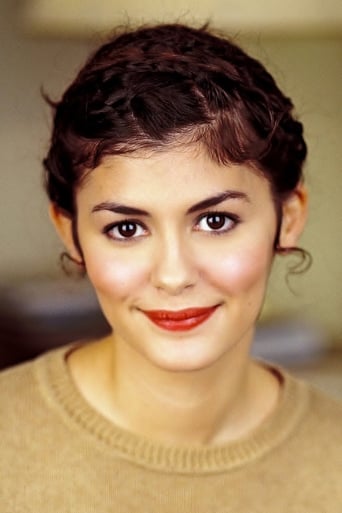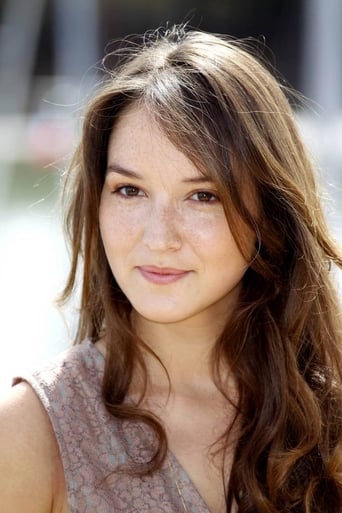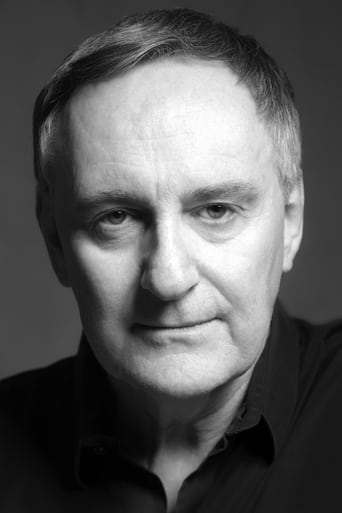NekoHomey
Purely Joyful Movie!
Matialth
Good concept, poorly executed.
Peereddi
I was totally surprised at how great this film.You could feel your paranoia rise as the film went on and as you gradually learned the details of the real situation.
Deanna
There are moments in this movie where the great movie it could've been peek out... They're fleeting, here, but they're worth savoring, and they happen often enough to make it worth your while.
paul2001sw-1
There are strong echoes of Madame Bovary and Anna Karenina in Claude Miller's film 'Therese Desqueyroux', derived from a 1920s novel about a woman trapped by convention in a stultifying marriage to a mediocre man. But where Emma Bovary is stupid, Therese is deeply intelligent; whereas Emma has an affair, Therese merely learns of that of her sister in law; and whereas Emma kills herself, Therese tries to murder her husband. In modern parlance, Therese is medically depressed; but while depression may lead to irrational behaviour, it is not itself necessarily without cause. In all these stories, one can feel ambiguous sympathy for the entitled husbands, who may not be likable per se, but who don't fully deserve the hand that fate deals them. There's a nice scene at the end of this film which neatly summarises Monsiuer Desqueyroux's utter emotional constipation. I also liked the way that the time and place (the Landes forest in south west France) are portrayed, and Audtey Tatou is very good in a role which is the opposite of cute.
tao902
Therese (Audrey Tautou) endures an unhappy marriage of convenience to an arrogant landowning neighbour. Her best friend, Anne, begins a passionate affair with a local man who is regarded by her family as unacceptable as he is not from such wealthy stock. When Therese learns that her husband's medicine contains arsenic she deliberately gives him overdoses that bring him close to death. Her life eventually deteriorates to the point where she commits suicide.Not a particularly engaging film. It was difficult to sympathise with the main character and it would have made more sense for the film to focus on Therese's best friend whose affair had been undermined.
ematerso
This movie was very confusing at first. Audrey Tatou was simply too old to play the supposed age of the lead character whom I believe as 18 when she was engaged and not much older when she married. Her friend/sister-in-law Anne looked more age appropriate.At first when I realized the theme the film was taking, I imagined that this was a story based on a real murder case. No, that wasn't the story at all. It is the story of an insipid, aimless woman, who likes to read and not much else. We see her doing nothing interesting (she won't even take a walk) she shows no real love for anyone except her aunt.I actually found her very unpleasant to look at. the house and the woods were lovely. the other actors all very good. As a film it really just missed, but exactly how I don't know.
TxMike
I found this movie on Netflix streaming movies. It is in French with English subtitles. I speak a bit of French, but man generic French is so quick that I could barely understand what they were saying, so the subtitles are important.I became a big Audrey Tautou fan when I saw "Amelie" the first time. Since then I have seen a total of six of her movies, she is always good, as she is here.It is set in the 1920s France, Audrey Tautou is Thérèse Larroque, in a family that owns some property laden with pine forests. This becomes a significant fact during the movie, as she gets married to a man who also owns land with pine forests and together their pine forest wealth will be great. But it also becomes a threat when, during a period of drought, a forest fire threatens their holdings. Almost as a ritual rather than a love affair Thérèse marries an older man, fine actor Gilles Lellouche as Bernard Desqueyroux. He is a nice man, reasonably handsome, loves his hunting, and sees Thérèse mostly as a way to have a family. And hopefully a son to carry on the family name. But there never was any passion in their relationship.The movie, as titled, is about Thérèse, her unhappiness and feeling trapped in the marriage. Her husband has some symptoms which require medication, and he is prescribed some sort of arsenic drops, only three a day with water. But soon Thérèse sees this as an opportunity, maybe a few more drops each day will do the trick. Of course he gets ill but recovers, her ruse is exposed and she even has to defend herself in court, with the cooperation of her husband. But their relationship, whatever there was of it, is badly damaged. Thérèse has a daughter, the baby is virtually taken away from her by family members, and seems to be growing up without even realizing Thérèse is her mother. Thérèse seems only mildly upset by that development, if at all. Seems maybe she wasn't cut out to be a wife or a mother!In the very last scene, in the city as Bernard tells her goodbye (pronouncing her name 'tezz') then we see her walking among all the people in the street, a wry smile on her face. Was she thinking, "All-in-all that worked out pretty well. Now I can start my life." An excellent character study, Tautou is great.






